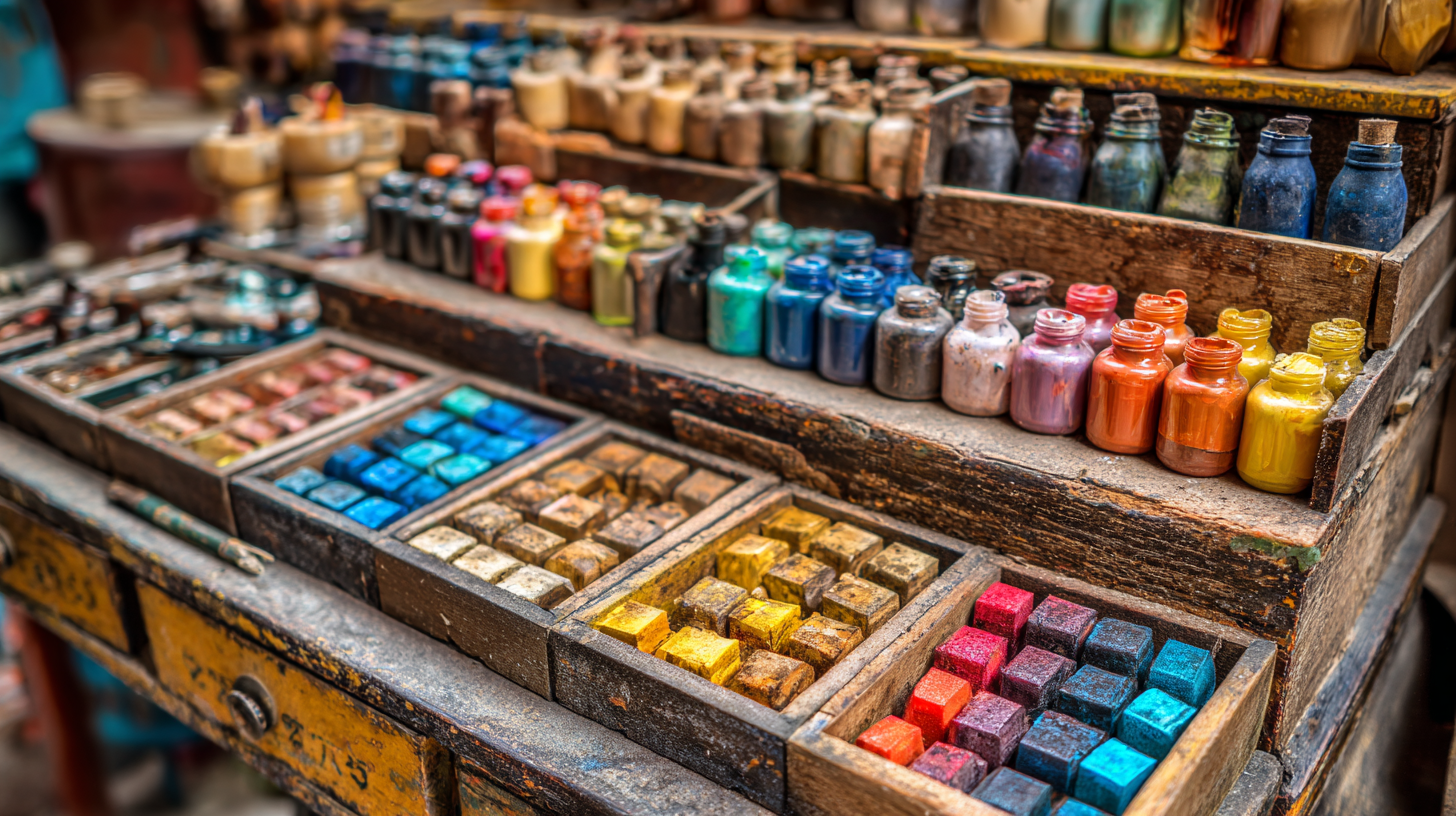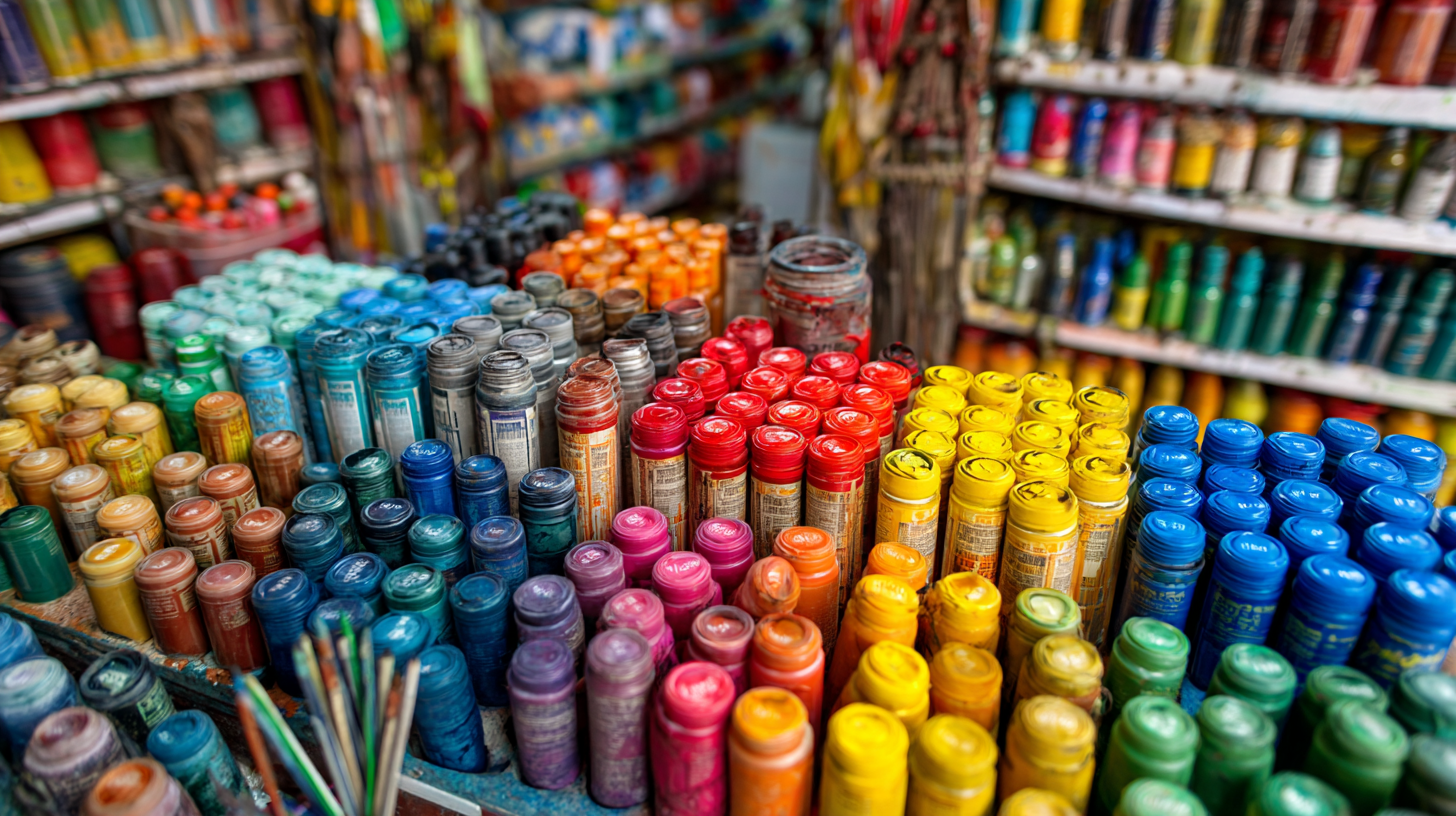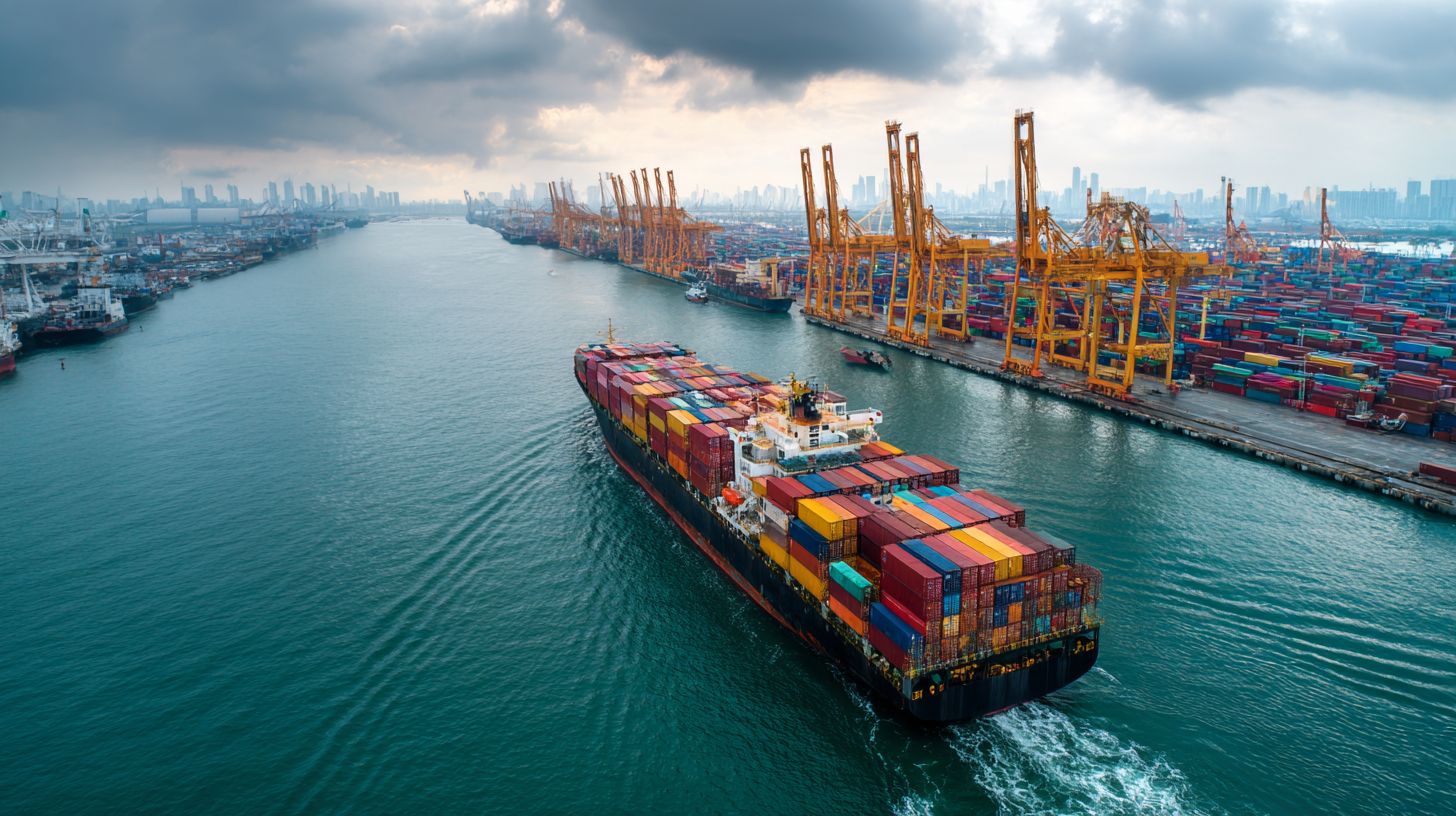In the ever-evolving landscape of the art supplies market, obtaining the right import-export certifications is crucial for those seeking to source high-quality Water Color and Pen products. According to a recent report by the Art Materials Industry Association, the global market for art supplies is projected to reach $30 billion by 2025, with watercolors and writing instruments accounting for a significant share. As artists increasingly prioritize sustainable and non-toxic materials, manufacturers are urged to comply with rigorous industry standards and certifications to meet consumer demands.

This comprehensive guide aims to demystify the certification process, offering insights and strategies for businesses navigating the complexities of importing and exporting these vibrant products while ensuring compliance with global regulations.
When it comes to sourcing art supplies, especially watercolors and pens, understanding import-export certifications is crucial for ensuring product quality and compliance with regulations. These certifications serve as proof that products meet specific safety and quality standards set by different countries. For artists and suppliers alike, being aware of the necessary certifications can prevent costly delays and ensure a smoother importing process.

Different regions may have varying requirements for art supplies. For instance, the European Union has stringent regulations regarding chemicals used in art materials, mandating certifications that address safety and environmental impact. Familiarizing oneself with these regulations not only helps in selecting compliant products but also enhances marketability. Suppliers who can showcase certified products gain a competitive advantage, as consumers increasingly prioritize quality and safety in their purchasing decisions.
Navigating the complexities of import-export certifications may seem daunting, but resources are available to guide stakeholders through the process. From understanding international standards to identifying the correct certifications required for specific products, comprehensive knowledge empowers artists and businesses to source superior materials confidently. This diligence not only ensures compliance but also fosters trust and reliability in the ever-evolving art supplies market.
When it comes to sourcing water color and pen products, understanding the necessary certifications can significantly influence both the quality and safety of what you're importing. Key certifications such as ASTM D4236 and EN71 play critical roles in ensuring that these art supplies comply with safety standards. ASTM D4236, for instance, requires that all art materials be labeled according to their potential hazards, providing essential information for both consumers and retailers. This certification assures that the colors and inks used are non-toxic and safe for children, which is a concern for parents and educators alike.
Additionally, the European standard EN71 focuses on the safety of toys and ensures that water color and pen products intended for children do not contain harmful substances. Compliance with these certifications not only facilitates smoother customs clearance but also enhances marketability, as products that meet recognized safety standards tend to gain consumer trust more easily. Therefore, before making any importing decisions, it’s crucial to verify that the water color and pen products meet these certifications, securing both safety and quality for your customer base.

When selecting reliable suppliers for water color and pen products, it’s essential to consider their certifications and adherence to industry standards. Recent trends indicate that businesses are increasingly prioritizing suppliers who have demonstrated compliance with recognized certification requirements, ensuring product quality and safety.
For instance, in the aerospace manufacturing industry, companies face a myriad of certification requirements, highlighting the critical need for compliance with stringent regulatory frameworks. Such industry practices suggest that certification not only enhances credibility but also aligns with consumer expectations for safety and quality.
A comprehensive report on cloud security reveals that as cloud computing rapidly evolves, discerning suppliers with credible security certifications has become vital for data protection and business continuity.
The growing demand for certified suppliers mirrors the increasing complexities in the global supply chain. Data indicate that organizations leveraging certified suppliers experience greater resilience and operational efficiency, which is critical in today’s competitive environment.
Thus, sourcing products from suppliers with necessary certifications is not merely a compliance exercise but a strategic decision that can significantly enhance product integrity and overall business success.
Navigating the certification process for importing and exporting watercolor and pen products can seem daunting, but a systematic approach can make it manageable. Each country has its own set of certification requirements that must be met to ensure products are compliant with safety and quality standards. According to a recent industry report by Statista, the global art supplies market is projected to reach $14.6 billion by 2025, with a significant portion of that growth driven by the demand for high-quality art materials. This rise in demand underscores the importance of understanding and fulfilling certification criteria to maintain market competitiveness.
Step one in the certification process is identifying the specific requirements for your target market. Regulatory bodies, such as the American Society for Testing and Materials (ASTM) and the European Union’s CE marking, provide detailed guidelines on the safety standards that art supplies must meet. A 2022 report from the International Organization for Standardization (ISO) indicates that products meeting established safety standards can increase consumer trust and brand loyalty, vital elements in a competitive landscape. By ensuring your watercolor and pen products comply with these certifications, you can enhance your brand's reputation and tap into a larger consumer base, ultimately driving business growth.
When it comes to importing and exporting watercolor and pen products, understanding the complexities of certification is crucial for ensuring product quality and expanding market access. Certifications like the BIS in India and the 3C in China serve as benchmarks for quality assurance, reflecting compliance with safety and performance standards. For manufacturers, achieving these certifications is not just about regulatory adherence; it opens up new avenues in international trade, elevating their brand credibility and market appeal.
Moreover, as highlighted by the trends in the Europe TIC market, businesses that prioritize certification can significantly enhance their competitive edge. It has been observed that numerous industries, including biobased products, are increasingly relying on sustainability certification to meet consumer demand and improve supply chain practices. For firms dealing in watercolor and pen products, leveraging these certifications can foster trust among consumers and business partners alike, ultimately driving sales and establishing long-term sustainability. As the global market shifts towards higher standards, staying ahead with proper certifications can determine a successful entry into diverse markets.
| Certification Type | Description | Impact on Quality | Market Access | Cost of Certification |
|---|---|---|---|---|
| ISO 9001 | Quality Management System | Ensures consistent quality and satisfaction | Widely recognized; enhances market opportunities | $5,000 - $10,000 |
| ASTM D4236 | Safety for Artists’ Materials | Ensures products are safe for consumer use | Increases appeal in safety-conscious markets | $3,000 - $5,000 |
| REACH Compliance | Registration, Evaluation, Authorization of Chemicals | Ensures product safety regarding chemical substances | Essential for EU market access | $2,000 - $4,000 |
| CE Marking | Conformity to European health and safety standards | Increases trust in product reliability | Mandatory for many European markets | $1,500 - $3,000 |
| ASTM F963 | Standard Consumer Safety Specification for Toys | Ensures toy safety, reducing liability | Required for the US market | $2,500 - $4,500 |
